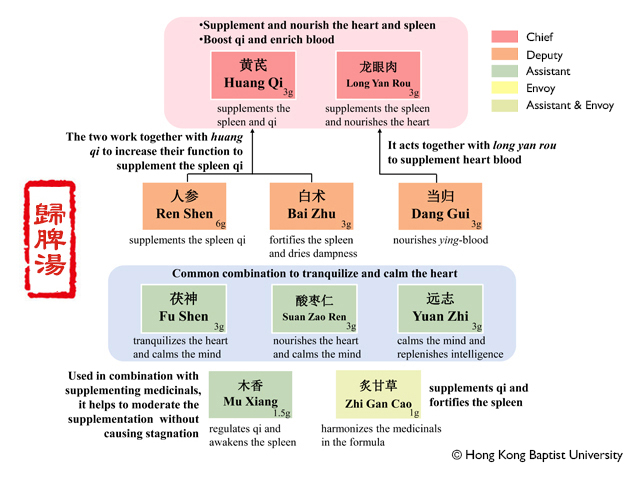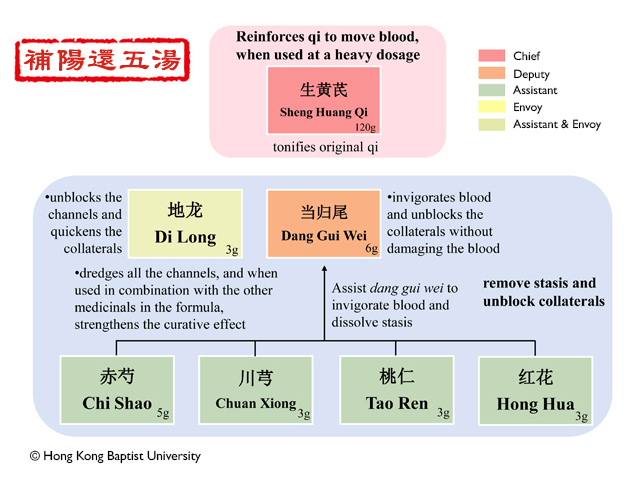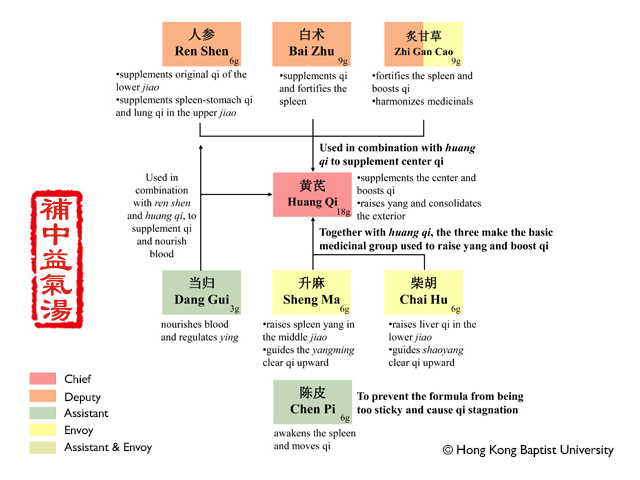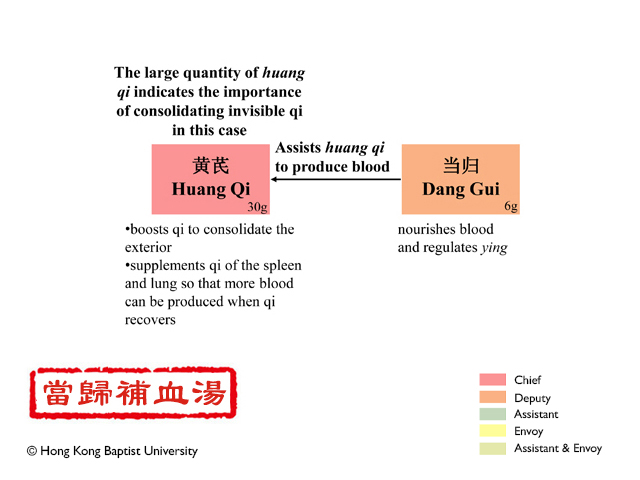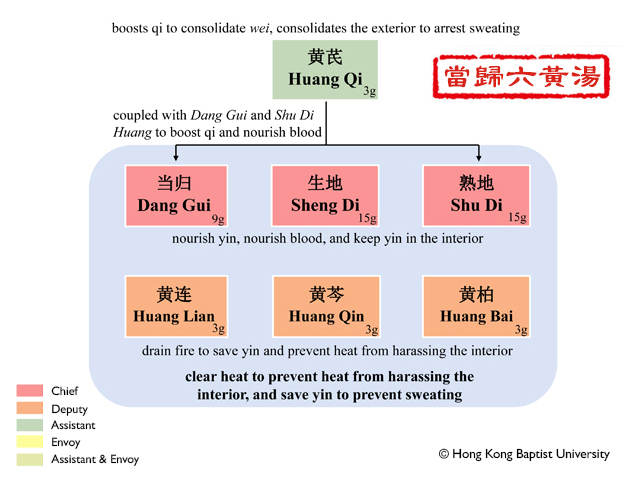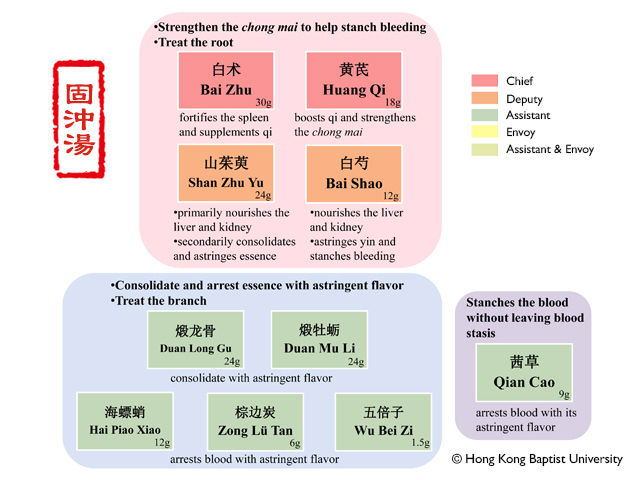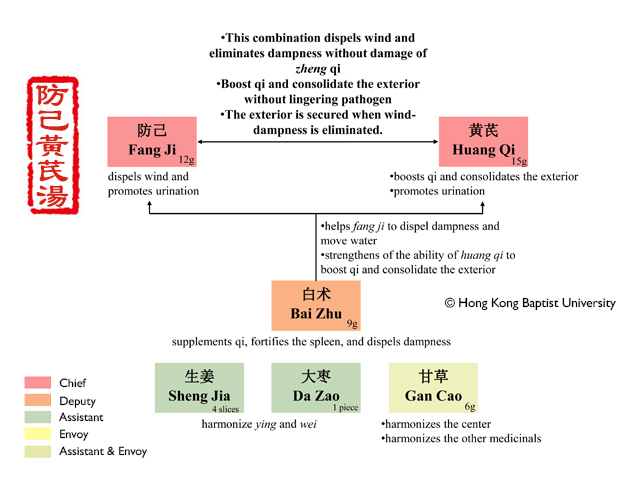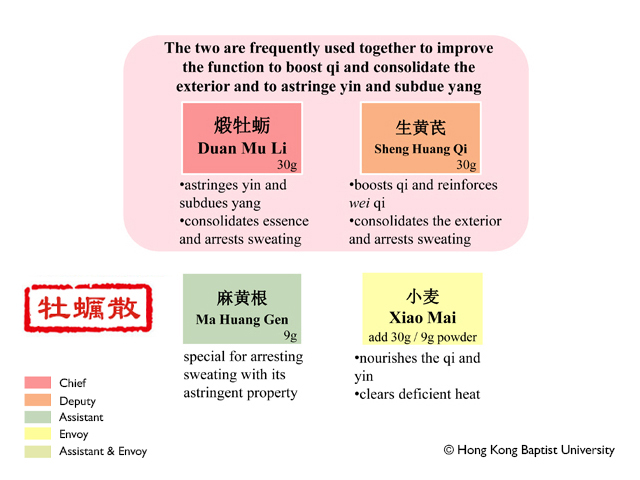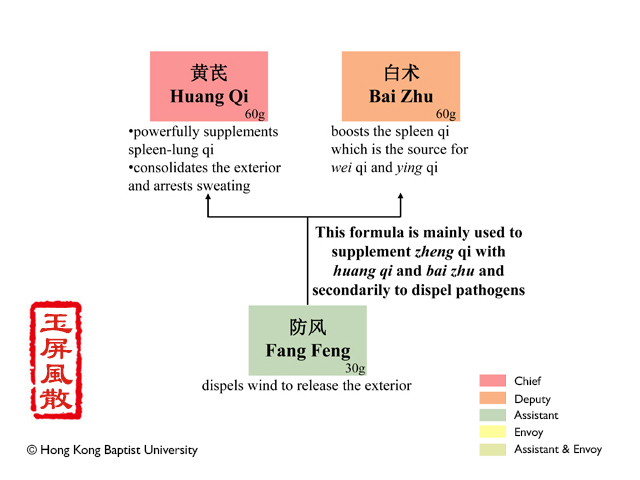Center-Supplementing and Qi-Boosting Decoction
Action:Supplements the center and boosts qi; raises yang and lifts the sunken.
Indication:Bu Zhong Yi Qi Tang is indicated for two patterns. The first pattern is deficient or sunken spleen qi with reduced food intake, general sluggish sensation, weak breathing, lack of desire to speak, sallow-yellow facial complexion, and loose unformed stool. The tongue is pale and the pulse is deficient. It is also used for rectal prolapse, uterine prolapse, chronic diarrhea, and flooding and spotting (beng lou). The second pattern is objective or subjective fever due to qi deficiency manifested by a feverish sensation, spontaneous sweating, thirst with a desire for hot drinks, shortness of breath, and lack of strength. The tongue is pale and the pulse is deficient, big, and weak.

